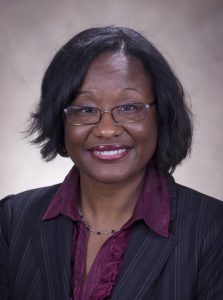
TUSCALOOSA, Ala. — The University of Alabama’s School of Social Work has been awarded a $1.35 million grant from the United States Department of Justice to improve outcomes of Alabama youths who are victims of human sex trafficking.
The Juvenile Victims of Human Trafficking in Alabama Project will help strengthen the state’s working relationships between treatment services, law enforcement and prosecutors, and develop a statewide multidisciplinary system of screening and training.
“There are a lot of people doing a lot of amazing work to target this problem in Alabama, but what this grant will do is really coordinate those efforts with a unified protocol for helping children who are victims,” said Dr. Javonda Williams, UA associate professor of social work and principal investigator of the grant.
“This will unify those pockets of great services in the state, give us a common language, a common to-do list for support and help.”
Additionally, the project will design and implement a database resource system, Safe iMmediately-Accessible Resources for Trafficked Youth, known as SMARTY, to provide immediate coordination of trauma-informed services to fully meet the needs of trafficked youth.
The three-year project will begin with a thorough assessment of needs and resources throughout the state, which will help UA researchers create a locale-sensitive training system that will help people better support the victims in each county. The next step will be to create a statewide database of information and resources.
“We’re not going to produce another big book training where they go back to their part of the state and do not have the same resources and services of a larger county,” Williams said. “We’ll need to catch up with what traffickers are currently doing and fit that into both smaller and larger areas. We we need to be as nimble as the perpetrators.”
Since 2007, there have been more than 300 cases of human trafficking in Alabama, the majority of which have been related to sex trafficking, according to the Human Trafficking Hotline. The Hotline received more than 1,100 calls and/or tips of human trafficking during that span.
Human trafficking is the second-largest and fastest-growing criminal industry in the world, according to End It Alabama, a project by the Alabama Human Trafficking Task Force, comprised of lawmakers, educators and service providers.
The Task Force helped propose and pass the Alabama Human Trafficking Safe Harbor Act, which levies stiffer penalties for those who purchase sex from underage victims.
Sallye Longshore serves on the Task Force and is director for the Alabama Department of Child Abuse and Neglect Prevention, which allocates funds for community programs to prevent child abuse. Longshore said that while her department works to raise awareness by training people to notice warning signs and how to report cases of human trafficking, there is a “real” lack of resources in the state, particularly in treatment.
“For instance, once we rescue young girls who’ve been abused, where do we place them?” Longshore asked. “We must locate the right foster home or therapeutic home for these teenagers. There are places in the state for girls to get the treatment they need, but some of these aren’t residential, so even though they get treatment during the day, what happens to them at night?
“Many have no idea how prevalent human trafficking is at every corner of the state.”
Contact
David Miller, Strategic Communications, 205-348-0825, david.c.miller@ua.edu
Source
Dr. Javonda Williams, 205-348-3926, jwilliams11@sw.ua.edu
